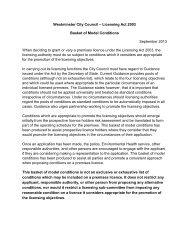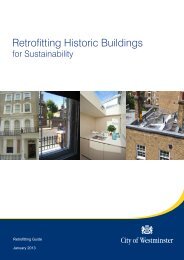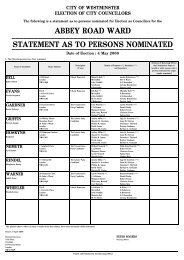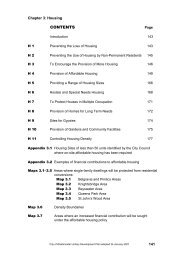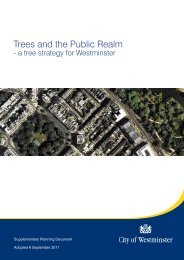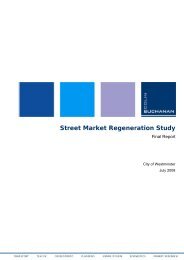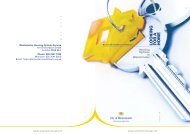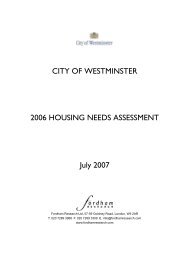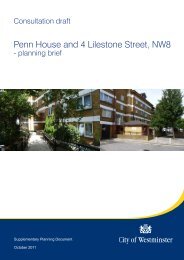Amended guidance issued under section 182 of the Licensing Act ...
Amended guidance issued under section 182 of the Licensing Act ...
Amended guidance issued under section 182 of the Licensing Act ...
You also want an ePaper? Increase the reach of your titles
YUMPU automatically turns print PDFs into web optimized ePapers that Google loves.
10.27 <strong>Licensing</strong> authorities may wish to <strong>of</strong>fer advice to applicants for licences and certificatesabout how to achieve this, such as reminding <strong>the</strong>m that <strong>the</strong>y cannot wait until a disabledperson wants to use <strong>the</strong>ir services but must think in advance (and on an ongoing basis)about what disabled people with a range <strong>of</strong> impairments might reasonably need; <strong>the</strong> duty tomake reasonable adjustments is an ‘anticipatory’ duty for service providers.10.28 The Equality <strong>Act</strong> 2010 by use <strong>of</strong> <strong>the</strong> word ‘reasonable’ recognises <strong>the</strong> need to strike abalance between <strong>the</strong> rights <strong>of</strong> disabled people and <strong>the</strong> interests <strong>of</strong> service providers.10.29 The Equality <strong>Act</strong> 2010 does not apply to provision <strong>of</strong> services.EQUALITY ISSUES10.30 <strong>Licensing</strong> authorities need to be aware that <strong>the</strong> Equality <strong>Act</strong> 2010 lists a number <strong>of</strong>protected characteristics which must not be used as a reason to treat a person lessfavourably than ano<strong>the</strong>r person (age, disability, gender reassignment, marriage and civilpartnerships, pregnancy and maternity, race (this includes colour; nationality; ethnicand national origins), religion or belief, sex, and sexual orientation). Treating a personless favourably than someone else because that person has one or more <strong>of</strong> <strong>the</strong>secharacteristics is discriminatory. The Equality <strong>Act</strong> 2010 also includes <strong>the</strong> public sectorEquality Duty which requires public bodies to have due regard to <strong>the</strong> need to eliminatediscrimination, harassment and victimisation; advance equality <strong>of</strong> opportunity; and fostergood relations, between people with different protected characteristics.10.31 Note that discrimination may be direct or indirect.THE PERFORMANCE OF PLAYS10.32 The 2003 <strong>Act</strong> provides that o<strong>the</strong>r than for <strong>the</strong> purposes <strong>of</strong> public safety, conditionsmust not be attached to premises licences or club premises certificates authorising <strong>the</strong>performance <strong>of</strong> a play which attempt to censor or modify <strong>the</strong> content <strong>of</strong> plays in any way.Any such condition would be ultra vires <strong>the</strong> 2003 <strong>Act</strong>.CENSORSHIP10.33 In general, o<strong>the</strong>r than in <strong>the</strong> context <strong>of</strong> film classification for film exhibitions, licensingauthorities should not use <strong>the</strong>ir powers <strong>under</strong> <strong>the</strong> 2003 <strong>Act</strong> to seek to impose conditionswhich censor <strong>the</strong> content <strong>of</strong> any form <strong>of</strong> regulated entertainment. This is not a properfunction <strong>of</strong> licensing law and cannot be properly related to <strong>the</strong> licensing objectives. Thecontent <strong>of</strong> regulated entertainment is a matter which is addressed by existing lawsgoverning indecency and obscenity. Where <strong>the</strong> concern is about protecting children, <strong>the</strong>iraccess should be restricted where appropriate. But no o<strong>the</strong>r limitation should normallybe imposed.80 AMENDED GUIDANCE ISSUED UNDER SECTION <strong>182</strong> OF THE LICENSING ACT 2003



